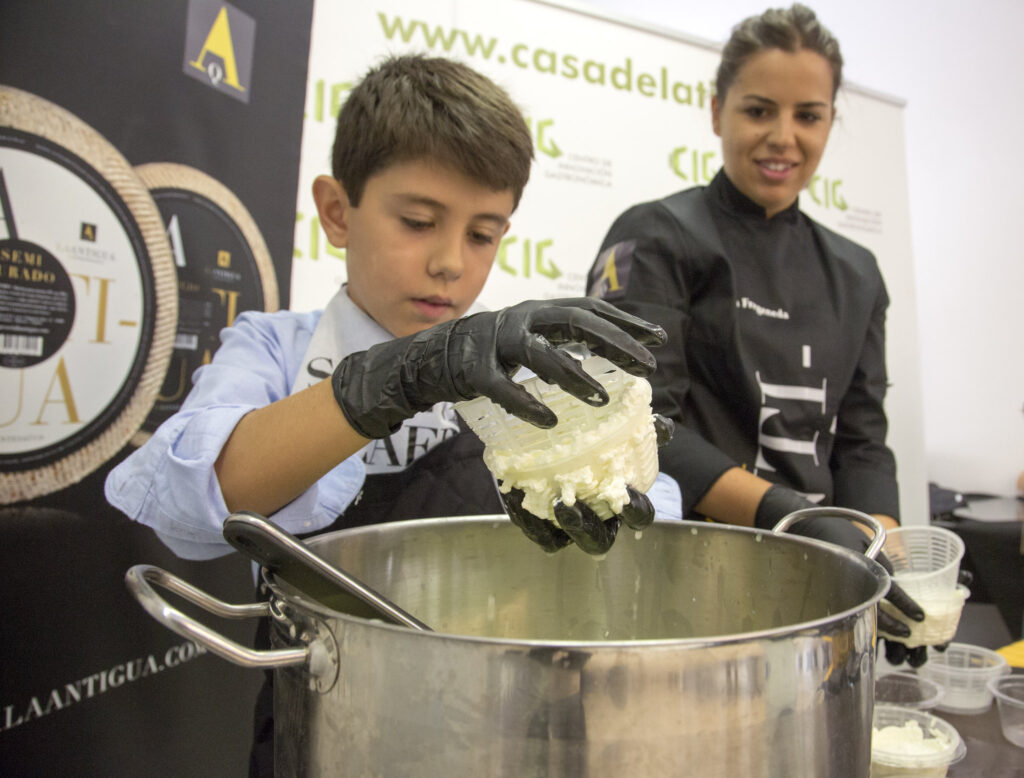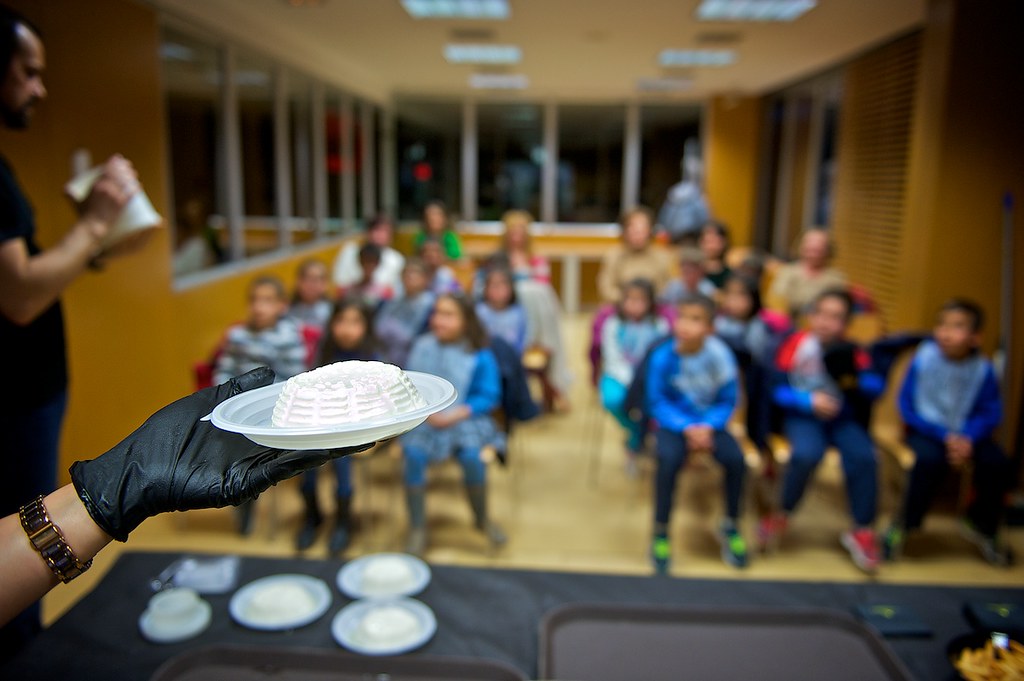Educating in Tradition: Cheese, a fascinating apprenticeship
In a fast-moving world, keeping traditions alive becomes an act of resistance, love and respect for our ancestors. At Quesería La Antigua, we know that our cheese is much more than a product: it is a history that lives on thanks to the inheritance of knowledge passed down from generation to generation. For us, educating in tradition is not just a phrase, it is the pillar that supports every decision, every practice and every taste.
Since ancient times, cheesemakers have refined their techniques, and shepherds have learned to interpret the needs of their herds. Each step in the process of making a traditional cheese – from milking the milk to curing it in cellars – holds the wisdom of centuries of experience. La Antigua not only makes cheeses, but is dedicated to preserving a legacy, to paying homage to those practices that have shaped cheese-making culture. To educate in tradition is, for us, to keep alive those methods that connect us with those who preceded us and allow the values they represent to reach future generations.
The transmission of knowledge to children
The role of childhood learning is crucial. We want the new generations to understand that behind every cheese there is a story, that every piece of cheese contains a little piece of the life of shepherds and cheesemakers. At La Antigua, we hold curd workshops and tastings where we share with the younger generations the artisanal process of our cheeses. It is not only about teaching them how it is done, but also about showing them the effort, dedication and affection we put into each step. Because educating in tradition is to make them see the value of taking care of their environment, to respect the rhythms of nature, and to value the work of those who are dedicated to protect this cheese culture.

Tradition as identity
In Castilla y León, and especially in Fuentesaúco, sheep cheese is a symbol of identity. Children growing up in our communities see it in their daily lives, but it often takes guidance, an “education in tradition” for them to fully understand the meaning of what surrounds them. When we teach them about cheese, we also talk to them about respect for the shepherd, about the importance of the herds, about living in harmony with the countryside and the natural environment. We want them to see cheese not just as a food, but as a reflection of our collective identity and the work that unites our community.
Knowing the customs to educate in tradition
Knowing the customs of rural areas not only connects us to our roots, but is also key to protecting and maintaining traditions that have shaped our cultural identity. In the case of cheese making and sheep herding, these practices reflect a deep respect for nature and know-how passed down from generation to generation. Shepherding ensures the sustainable care of the fields, while artisanal cheese making keeps alive the authentic flavors that only time and dedication can achieve. Valuing and learning from these customs not only fosters the preservation of tradition, but also boosts the local economy, strengthens the link with the environment and ensures that these cultural riches are not lost in the constant evolution of modernity.
La Antigua’s role in the preservation of cheese culture
At Quesería La Antigua we feel responsible for safeguarding traditional cheese-making practices and ensuring their continuity. Through workshops, tastings and experiences, we seek to bring people closer to the world of artisan cheese, offering them an experience in which they can understand what it means to educate in tradition.
Our commitment is not only to the past, but also to the future. By educating the youngest children in tradition, we are cultivating in them respect for artisan work, for the value of handmade things and for the flavor that can only be achieved through patience and inherited knowledge. We are committed to an education that forms future ambassadors of our cheese culture, who are proud of their roots and understand that tradition is not something static, but a living legacy that must be cared for and adapted.
A legacy that continues
At La Antigua, educating in tradition is the way to ensure that our work, our values and our passion will endure. Every cheese that leaves our facilities is a testament to our dedication to tradition. Because we understand that without a past there is no future, and that educating children to respect and appreciate their history is the best way to ensure that this cheese culture survives and thrives.
So, every time someone tastes one of our cheeses, they are tasting a little piece of that tradition that we defend so much.

La Antigua EDUCA
Quesería La Antigua’s EDUCA workshops are a unique experience where tradition and learning come together to teach people of all ages the art of cheese making. From the youngest to the oldest, these workshops offer the opportunity to discover in a practical and fun way how products are born in a traditional way. With a focus on preserving the essence of artisanal cheese making, EDUCA seeks to connect participants with the roots of the countryside and cheese culture, transmitting knowledge that reinforces the value of traditional processes in an increasingly industrialized world.
Do you dare to feel like a cheese artisan for a day?Come and visit us!
